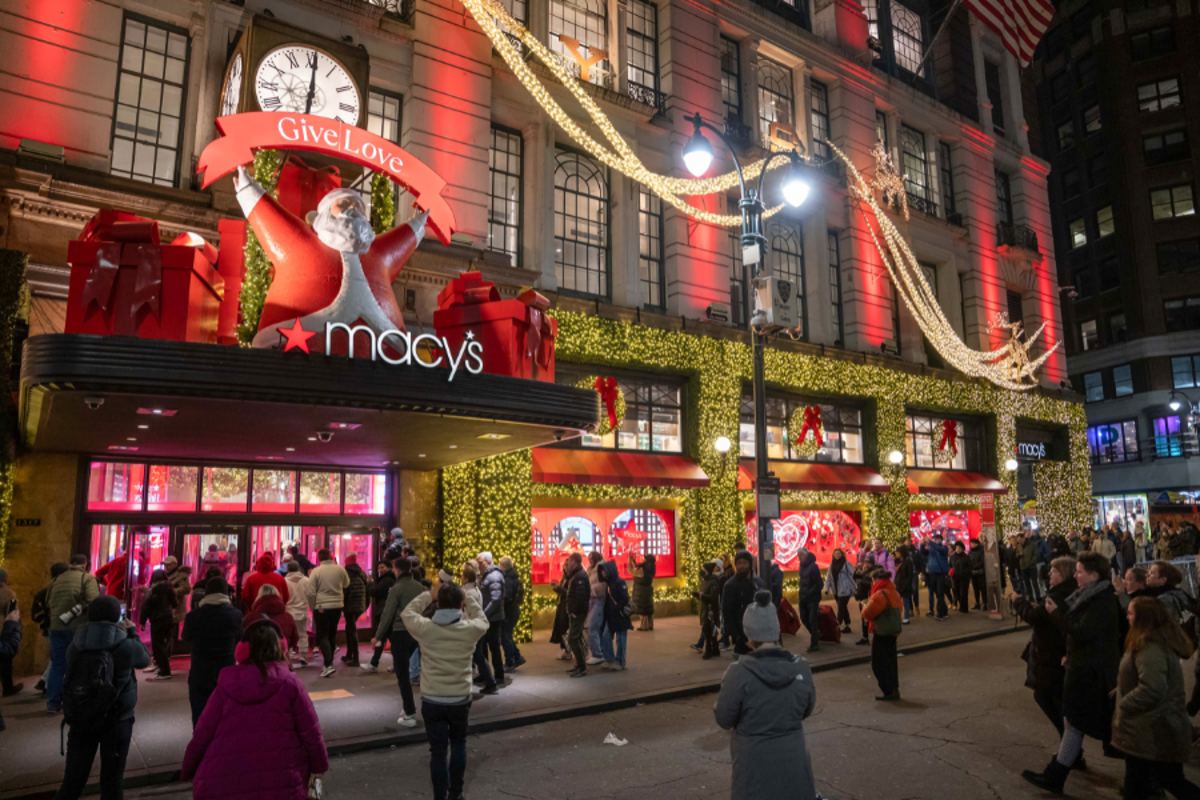
Grassroots campaigners are urging a nationwide boycott of Black Friday and Cyber Monday to protest the Trump administration and economic inequality.
Activist groups Blackout the System, The People’s Sick Day, American Opposition, the Money Out of Politics Movement, and The Progressive Network all planned separate boycotts but decided to come together as a coalition to launch the “Mass Blackout,” scheduled from November 25 to December 2.
The weeklong economic protest urges people to boycott major corporations and shop at local or independent businesses, preferably using cash instead of card.
Small Business Saturday on November 30 is excluded from the boycott.
People’s Union USA founder John Schwarz said in several Instagram posts that participants should remind them that “we are the economy.”
Timed to coincide with the kickoff of the busy holiday shopping season, the coalition urges participants to skip travel and dining out and to cancel streaming or digital subscriptions.
“We are living under a political system captured by special interests, where billionaires and corporations write the rules,” Isaiah Rucker Jr., founder of Blackout the System, told USA Today in a statement.
“Congress serves donors, not the American people, and democratic norms are being dismantled in front of our eyes, with corporate backing. This campaign is about showing them where the power truly lies, with the people.”
Carlos Álvarez-Aranyos, founder of American Opposition, told the outlet that the coalition aims to build public power through boycotts and blackouts as a step toward a general strike.
He described the movement as a fight between the powerful and the working class, not left versus right, citing rising prices and inflation as evidence that “people are being taken advantage of.”
Meanwhile, grassroots organizations such as Black Voters Matter, Indivisible, and Until Freedom are spearheading a nationwide boycott campaign called “We Ain’t Buying It.”
The campaign targets major retailers, including Amazon, Target, and Home Depot, that the groups say have backed away from their commitments to diversity, equity, and inclusion programs after previously supporting them, particularly in the context of opposing President Donald Trump.
Instead of shopping at these retailers, the campaign encourages consumers to support businesses that have resisted Trump’s influence, as well as Black-owned, minority-owned, immigrant-owned, and local small businesses.
The Independent has contacted the White House for comment.
American consumers spent $13.3 billion on Cyber Monday in 2024, marking a 7.3 percent increase compared with the previous year, according to Exploding Topics.
During the broader “Cyber Week” period, from Thanksgiving through Cyber Monday, about 197 million Americans participated in holiday shopping.
Buyer activity on Cyber Monday surged dramatically, increasing 512 percent compared with a typical day. Online shopping dominated the week, with online sales surpassing in‑store sales on all but one day.
On Cyber Monday itself, there were 64.4 million online shoppers compared with 23.2 million shopping in stores. Smartphones played a significant role in online shopping, accounting for 57 percent of Cyber Monday sales in 2024, up from 55% in 2022.
Discounts were especially notable in certain categories, with electronics seeing the deepest markdowns at 30.1 percent off, followed by toys at 26.1 percent and apparel at 23.2 percent, per the report.
The “Cyber Five” period, spanning Thanksgiving through Cyber Monday, is projected to account for about 17.2 percent of all holiday season sales in 2025.
This holiday season, the average U.S. consumer plans to spend $1,552, a 5 percent decrease from 2024, while gift spending is expected to drop by 11 percent, according to the data.
